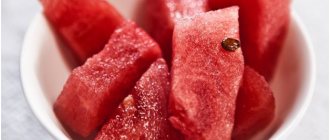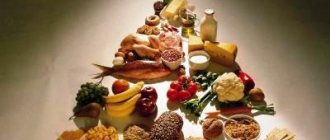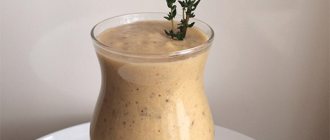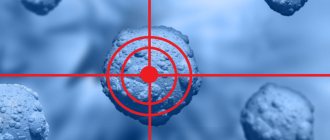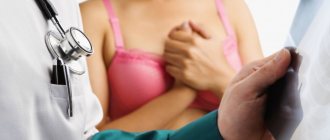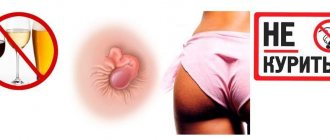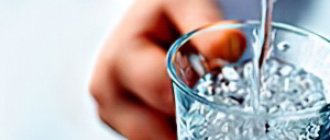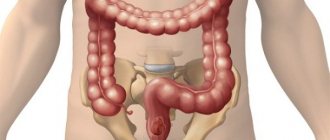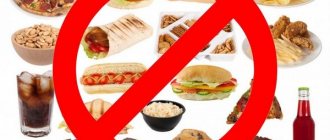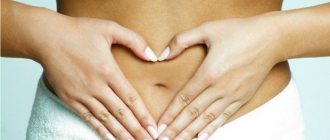Is it really important to eat right if you have cancer?
By choosing unhealthy foods for food with preservatives, stabilizers, and flavor enhancers, we not only do not contribute to improving health, but also provoke the onset of many diseases, including cancer. But if simple prevention of oncology with the help of proper nutrition seems to be an ineffective exercise and a waste of time, then treatment with diet for an existing cancer disease is crucial during medical treatment or after it, helping to stabilize the condition of cancer patients.
A properly balanced diet maintains normal metabolism, fills the body with vitamins and minerals that are necessary for the digestive system, but also prevents the formation of free radicals, which can negatively affect organ tissue.
In patients with malignant neoplasms (carcinomas), metabolism is disrupted due to the fact that the tumor requires a significant amount of glucose, vitamins and protein, while releasing toxic waste products into the patient’s blood. This is accompanied by intoxication, weight loss and severe weakness. If bleeding occurs during the disease, then signs of anemia and lack of oxygen in the tissues may appear, and this further significantly aggravates the condition of the patient with oncology.
A feature of the diet of an oncology patient is that if it is necessary to refuse a large assortment of foods, it is necessary, if possible, to provide the patient with oncology with the required amount of calories and nutrients. But with certain types of tumors (in the stomach, intestines, larynx, oral cavity) this is difficult to achieve. In such cases, in addition to normal nutrition, they also resort to infusion or enteral (using a probe) administration of additional mixtures and substances. This often happens if the patient is an incurable cancer patient, i.e. when there is no longer hope for a good outcome of the disease.
Basic principles of nutrition for malignant tumors
The diet for uterine cancer is accessible, simple and not at all new. The basis of the diet should be plants grown without chemical additives in ecologically clean areas, which have cancer-protective properties that are known to everyone since childhood. This:
- garlic, onion, asparagus;
- legumes (peas, beans);
- cabbage, broccoli, radish;
- pumpkin seeds and nuts;
- tomatoes, carrots, beets, potatoes;
- fruits, berries, citrus fruits;
- dill and parsley.
Doctors say that both in the process of fighting the disease and for its prevention, it is necessary to consume at least 5 servings of fresh, unprocessed plant food every day.
Priority should be given to brightly colored fruits and leafy greens, which are rich in antioxidants and chlorophyll, which inhibit the formation and development of tumors, as well as atypical degeneration of papillomas and polyps.
Proper nutrition for invasive cervical cancer also involves including fish rich in fatty acids that inhibit tumor development. It is advisable to use meat products not too often and of low-fat varieties. It is necessary to have milk, fermented milk products, and hard cheese in the diet. Sprouted grains, a variety of cereals, muesli, vermicelli, and natural honey will be very beneficial for health. Among drinks, it is advisable to give preference to freshly brewed green tea, natural mineral water and juices.
When preparing dishes, it is recommended to boil, bake or steam food. Food must be taken in small portions several times a day.
In the later stages of this cancer or during chemotherapy, patients may experience a decrease in appetite and a decrease in body weight, which is a sure sign of exhaustion of the body. At this time, the diet should contain all the nutrients necessary for normal life. However, you shouldn’t go to extremes by eating high-calorie, fatty foods. Easily digestible, low-fat foods will bring much greater benefit at this time.
Leading clinics in Israel
Assuta
Israel, Tel Aviv
Ikhilov
Israel, Tel Aviv
Hadassah
Israel, Jerusalem
Recommended Products
Products that are recommended to be consumed for cervical cancer must meet the following requirements - to be natural, not to have a negative effect on the pathological process, and to have a positive effect on the entire body. Such a diet will help not only improve immunity and normalize the vitamin and mineral balance, but can also make treatment more effective due to its effect directly on the tumor process. For example, if any food has antitumor activity, suppresses pathological cell division, etc.
Fruits
Eating fruits is extremely important as they contain many beneficial substances, vitamins and minerals. They will not only improve the condition of the body, but also reduce the severity of the symptoms of the disease, accelerate healing after radical intervention, etc. the most useful and recommended are the following types:
They should be consumed exclusively fresh or as part of fruit salads. Heat treatment should not be allowed. You can use natural freshly squeezed juices and homemade fruit drinks. It is important that the fruits are of high quality, environmentally friendly and fresh. You also need to wash them thoroughly.
Vegetables
Vegetables are good for the body with this diagnosis for the same reason as fruits. They are also rich in vitamins and minerals and can saturate the body with useful substances. Unlike fruits, they are also rich in fiber, which is also indicated for this diagnosis. The most useful vegetables and root vegetables will be:
It is better to consume such products raw, for example, as part of salads, if possible. If they are not edible, then they can be boiled, baked without oil, stewed, etc. You can also prepare vegetable broths.
Berries
Regarding the choice and forms of consumption, all the same requirements apply to berries as to fruits. They have the same positive effect on the body. The following types of berries are most recommended for consumption:
All of them are effective in the fight against oncology due to the fact that they contain antitumor components. And in addition, oxidants that remove free radicals and toxins from the body, which can potentially provoke tumor growth or relapse.
Cereals
The diet for uterine cancer should include a sufficient amount of grains. This is due to the fact that they are rich in fiber and some other beneficial substances. They allow you to normalize metabolism, thereby preventing the accumulation of toxins in the body. It is worth giving preference to the following types of grains:
Also recommended for consumption is whole grain bread, which has the same positive effect on the body as boiled porridge and side dishes. Beans, peas, and soy are also recommended.
Meat and fish
You should give preference to lean white meat and poultry. It is also better to eat lean, white fish. The only recommended type of red fish is salmon. Cooking method: boiling, stewing, baking in foil without oil or seasonings.
Greens and more
Although it is generally best to avoid herbs and spices in this condition, there is still a list of recommended herbs. You can and even should use:
- Parsley;
- Red hot pepper in moderation;
- Coriander.
Turmeric, ginseng root, honey, propolis, mustard, etc. are also recommended for use.
Recommended drinks
During this period, you should avoid coffee and tea, as they contribute to the accumulation of oxidants in the body, which can potentially penetrate cells and form insoluble bases there. It is better to give preference to green tea and rosehip decoction, which have an antioxidant effect.
Diet for oncology
A diet against the formation of cancer cells should consist of a large amount of plant foods: vegetables and fruits, cereals and legumes, fiber, but you should not eliminate meat from the diet, giving preference to low-fat varieties - veal, turkey, rabbit. It is necessary to include in the diet fish, which is rich in polyunsaturated fatty acids, and seafood, where iodine is present in the required amount.
But the first step to such a diet should be to give up foods that contain carcinogens and, accordingly, cause cancer: fast food, sausages, smoked meat and fish, potato chips, various processed foods, confectionery, carbonated sweet drinks, etc. d.
If the state of the digestive system of a cancer patient allows it, then the diet should contain readily available carbohydrates in the form of nuts, honey, dried fruits (dried apricots, raisins, dates), cookies or chocolate.
Harmful products
The diet for uterine cancer excludes the consumption of drinks and foods such as:
- strong alcohol;
- carbonated drinks;
- coffee, cocoa;
- strong black tea;
- confectionery and sweet products;
- smoked, spicy, salted, fatty and chemically additive products;
- semi-finished products, canned food and marinades;
- sausages.
A balanced, varied diet for cervical cancer is, most importantly, a balanced, systematized and coordinated program of food consumption, in each specific case of which individual restrictions and recommendations of the attending physician are taken into account.
Nutrition rules for cancer
A diet for oncology must definitely be coordinated with a doctor, since it is important to know the exact data on the location, stage and malignancy of the tumor formation. After any treatment, for example, chemotherapy for malignant tumors, and after surgery, it is advisable to review your diet in consultation with an oncologist. In this case, the diet should contain easily digestible foods and foods that can provide the maximum amount of proteins and carbohydrates for recovery and regeneration. To calculate, use the ratio: per 1 kg of human weight you need up to 30-40 kilocalories. In accordance with this, you can calculate the approximate calorie content of the diet.
Important! The diet should consist of 55% carbohydrates, 30% fat, and 15% protein.
In case of oncology, it is necessary to comply with the mandatory simple requirements for eating and preparing food:
- Eat food at room temperature, avoid eating very hot food or from the refrigerator;
- You need to chew food thoroughly to improve digestion. This is especially important for patients with gastrointestinal cancer;
- It is advisable to eat food boiled, avoid fried foods. Frying worsens the condition of the body in general, and the liver in particular;
- Eat in small portions (about 250 g per serving) 5 to 7 times a day;
- Eat only fresh food, do not store ready-made meals for more than noon;
- For those who have undergone gastric resection, food must be ground in a blender;
- Drink at least 2 liters of still water a day, or boiled water from the tap.
What foods should you eat against cancer?
Taking into account many years of research, it is possible to identify some products that prevent tumor development, i.e. slow down its growth. They contain substances with antioxidants, anti-cancer substances and even immunity-boosting substances. A proper diet can not only prevent cancer, but also give cancer patients an extra chance of recovery.
Diet for bladder cancer
The diet for bladder cancer is based on the principles of a healthy diet, the purpose of which is to maintain the patient’s body’s defenses. For these purposes, it is necessary to consume fresh vegetables, fruits, herbs and berries every day.
It is necessary to completely abandon:
- Drinking alcohol and smoking.
- Various carbonated drinks.
- Hot, spicy, fried, fatty and salty foods.
- Products that contain preservatives, dyes and artificial additives.
- Red meats - beef, pork, lamb.
- Mushrooms.
After surgery, you must adhere to the following dietary recommendations:
- In the very first days, nutrition is provided only intravenously.
- Taking liquids in the form of drinking is possible only on the second day. On the first day, the patient’s lips should be wiped with a piece of damp cotton wool.
- After the first days of the postoperative period, when intestinal motility returns to normal, the patient can eat low-calorie, low-fat diet foods in small portions. Such dishes are considered broths with pureed chicken or fish, low-fat pureed cottage cheese, and so on.
- From the fifth day of the postoperative period, the patient can eat steamed cutlets, heavily boiled porridge, and so on.
- On the tenth day, the strict diet is removed and the patient returns to the diet that was recommended before the operation.
Protein products that are allowed to be consumed are:
- from 120 to 180 grams of meat per day (fish, poultry, lean meats, liver);
- legumes;
- nuts;
- eggs
You can eat dairy products at least twice a day:
- various dairy products;
- fermented milk products.
Fruits and vegetables should be consumed at least three to four times a day in the following quality:
- fresh vegetables or vegetables stewed, boiled, baked or steamed;
- fruits and berries high in vitamin C;
- vegetable and fruit salads;
- dried fruits;
- freshly prepared juices.
The following cereals and grains can be eaten at least four times a day:
- wholemeal bread;
- sprouted cereals;
- various cereals
For fats, you can use vegetable oils and butter, cream and sour cream in small quantities.
Drinking should be plentiful, among which freshly prepared juices should occupy a special place.
Some types of cancer and dietary habits for them
Some forms of cancer require special types of diet - special nutrition. This directly applies to patients with pathologies of the digestive system, after surgery, and during chemotherapy.
When diagnosed with stomach (rectal) cancer, too spicy, fried or fatty foods, seasonings are contraindicated, and foods that increase the secretion of gastric juice (pickled vegetables, alcohol, carbonated drinks) are also prohibited. Preference is given to soups, cereals, ground meat, various purees, and fruits. During surgery, the diet involves a temporary absolute refusal to eat food by mouth for 2 to 6 days. All necessary nutritional components are administered through an intravenous drip (parenterally). Later, it is possible to feed enterally (through a tube) with nutritional modules that include a single nutrient: proteins, fats or carbohydrates.
For intestinal cancer, food should be easily digestible, preference should be given to plant products, vegetables, fish, and vegetable oil. Do not eat foods that increase gas formation (grapes, cabbage). Alcohol is definitely excluded. Meals should be fractional. Similar principles should be followed for liver cancer.
For breast cancer, certain products are recommended for use that help fight tumors in this area. These products include: soybeans, pumpkin, carrots, spinach, salmon, cod, hake, halibut.
Application of herbal medicine
The diet for cervical cancer should include decoctions and infusions of special herbal preparations. According to the recipe for one of them, you need to pour a glass of boiling water into a teaspoon of a mixture prepared from the following medicinal plants taken in equal parts:
- plantain;
- series;
- yarrow;
- medicinal clover;
- St. John's wort;
- wormwood paniculata;
- Dill seeds;
- spiny tartar;
- sage and nettle roots.
The infusion, infused for half an hour and strained, should be taken in the morning and evening, half a glass after meals for a year.
Features of diets after operations
Patients in the postoperative period are allowed to consume fermented milk products (cottage cheese), eggs, fish, and drink tea (jelly). Later, the list of permitted products can be expanded, but some products: fried and smoked foods, seasonings, sweets and alcohol will not have a place in it. Cereals and bran are useful, as they have the ability to normalize peristalsis and prevent constipation. But rice and pasta are prohibited foods.
If there is a dung bag for removing feces, patients (especially seriously ill bedridden patients) are required to maintain the correct drinking regime (avoiding dehydration). Contraindicated in the menu are cabbage, legumes, eggs, seasonings, apple and grape juice, nuts - anything that can cause gas formation.
The diet for stage 4 oncology has its own characteristics depending on the location of the tumor, but all patients need high-calorie specialized nutrition, since the cancer tumor “feeds” on a significant amount of energy, amino acids, glucose, vitamins, and proteins.
Cancer cachexia, or in other words, exhaustion (weakening) of the body, is the fate of all patients with advanced forms of oncology. There may be a loss of appetite or even a complete aversion to food in general, or to certain foods, such as meat. Often a cancer patient refuses to eat and needs to increase his appetite, which can be done by diversifying the diet with recipes for new dishes. In addition to good nutrition, patients need to drink vitamins, take multivitamins and minerals in tablets, and medications that replenish the lack of iron, magnesium, and selenium. Don't be afraid to eat carbohydrates. Many people think that a malignant tumor consumes an increased amount of glucose, this is a contraindication for its consumption, but it is also necessary to take into account the energy consumption of the patient’s body, therefore compensation for its own needs is the main task of nutrition.
Vegetables against cancer
If you have cancer, vegetables should be consumed with every meal. The daily norm is at least 500 g. Any vegetables are necessary, but there are a number of especially useful ones in the event of a cancerous tumor:
- Broccoli is an irreplaceable source of valuable substances. This vegetable is especially useful for gynecological diseases. Contains a huge amount of vitamins (C, E, A) and microelements (iron, magnesium, phosphorus, potassium, calcium, sodium, iodine). Nutrition for cervical cancer includes other types of cabbage: cauliflower, cabbage, Brussels sprouts. Use them as a side dish or in salads.
- Tomatoes are included in the menu of cancer patients mainly due to their lycopene content. This is a substance that prevents the process of gene mutation and protects healthy cells from destruction. Our bodies do not produce lycopene, which is why it is important to get it through food.
- Asparagus contains polysaccharides that scientists say fight tumors. It is rich in choline, biotin and folic acid, which maintain optimal blood sugar levels. Flavonoids in asparagus have anti-cancer and anti-inflammatory properties.
- Pumpkin improves metabolism, improves immunity, and kills cancer cells. Contains vitamins B and C, carotene, iron, phosphorus, potassium and many other essential microelements. But people with stomach diseases should limit their consumption of this vegetable.
- Carrots are included in the menu of almost all cancer patients. Beta-carotene, which is one of its main elements, is able to inhibit the development of “bad” cells. There are real stories in which people were cured of early stage cancer by drinking several glasses of freshly squeezed carrot juice every day.
- Beet. There are known cases of people recovering from cancer who ate beets daily. The special substances contained in it have anti-cancer properties. They are called anthocyanins. Experts recommend drinking about 500-600 ml of juice per day every day. Before drinking, the juice must stand in the refrigerator or on the window for at least 2 hours. When freshly squeezed, it causes nausea, vomiting, decreased blood pressure and a number of other side symptoms.
- Radish. Research has shown that this vegetable has anti-cancer effects. But in order for these properties to reveal themselves, the radishes must lie in the fresh air. Therefore, you need to use it like this: grate it and let it brew for about half an hour.
- Greens: spinach, parsley, watercress, etc. It is better to eat them unprocessed, so they will retain maximum vitamins. Greens can be added to salads, main dishes or in vegetable and fruit smoothies.
Be sure to read: Diet for kidney cancer
Features of the diet after chemotherapy
During chemotherapy and in the pauses between courses, it is recommended to consume foods from four groups:
- Protein;
- Dairy;
- Bread and cereals;
- Vegetables and fruits.
During chemotherapy, you need to increase the volume of fluid you drink to 2 liters per day, if the kidneys are working and urine is excreted normally. It is useful to drink juices - carrot, apple, beet, raspberry, and in general it is good to use juice.
If the patient constantly feels sick and vomits, then it is necessary to reduce the consumption of milk, too sweet (sugar in large quantities is harmful to the patient) and fatty foods. It is wise to do breathing exercises, eat small portions and not drink a lot of water after meals so that the stomach does not become too full. It is necessary to avoid spices and foods with a strong taste, and right before the administration of any chemotherapy drugs or when it is necessary to carry out radiation, it is better for cancer patients not to eat food.
There are many types of diets that are recommended for oncology: protein-free, protein, alkaline, universal, etc. But we can say that the attending physician prescribes each diet individually, no matter how good it is, based not only on the disease, but also taking into account many other factors.
Nutrition for hormone-dependent breast cancer. Nutrition for breast cancer stages 1, 2, 3
The diet for breast cancer does not have to be strict. Moreover, doctors note that a sudden change in diet can lead to negative consequences. However, certain restrictions will have to be observed, because the success of treatment for hormone-dependent oncology depends on nutrition, among other things.
What to eat during and after chemotherapy
Nutrition during chemotherapy should help a woman’s body cope with the side effects of the procedures. Patients are often concerned about intestinal problems - constipation or diarrhea. In both cases, you need to drink enough liquid. For constipation, water and foods rich in fiber - grain bread, fruits, bran - promote normal peristalsis. If the patient is bothered by diarrhea, drinking frequently helps avoid dehydration.
If chemotherapy drugs make you feel nauseous, eat small meals several times a day. Berries and fruits with a sour taste also dull nausea. Many patients note that they feel more comfortable eating cool foods during chemotherapy.
Nutrition after chemotherapy is aimed at restoring the body. Doctors usually don’t single out any prohibited foods, so eat your favorite foods little by little, noting your body’s reaction to them. A positive attitude is important for recovery, and delicious meals will help with this.
The diet for breast cancer can be Mediterranean. It consists mainly of cereals, pasta, whole grain bread, as well as vegetables and fruits. Give preference to fish and seafood rather than meat. Research shows that breast cancer is quite rare in Mediterranean countries. Cook in vegetable oil. Eat dairy products within reasonable limits.
Nutrition during hormone therapy for cancer is also not limited to clear recommendations. The oncologist will always tell you what not to eat during treatment, especially when the patient has contraindications or if the medications used cannot be used simultaneously with certain foods.
How to eat with breast cancer: basic recommendations
By gradually changing your daily menu, you can slow down the development of cancer or reduce the risk of relapse of the disease. We tell you how to adjust your diet:
- Stop frying food: when cooked, foods containing carbohydrates release acrylamide, a carcinogen. To preserve the beneficial properties of food, you can cook in a double boiler.
- Avoid canned goods and foods with long expiration dates. If it’s difficult, remove them from your diet gradually. Someday you will be surprised that it took you so long to give up this food.
- Drink green tea, which is known for its antioxidant properties. Beetroot works in a similar way, so it will also be useful for cancer patients.
- Try to replace sweets with honey, dark chocolate, marshmallows and dried apricots.
- Monitor the nutritional value of your food. Nutrition for breast cancer should include fats, a third of which are of plant origin, and protein, which is found in beef, low-fat cottage cheese, and sea fish. Gradual weight loss while being overweight will indicate that you are going in the right direction.
- Include broccoli in your diet. Cabbage from the cruciferous family is most beneficial for humans and has antitumor activity.
- It is almost impossible to achieve the daily dose of nutrients from regular food. It’s hard to imagine that you can eat, for example, 4 kg of cabbage per day. To compensate for the deficiency of substances useful for oncology, take special products that include indole-3-carbinol (cruciferous plant extract) and epigallocatechin-3-gallate (green tea extract). They are contained in a standardized quantity in the biologically active food supplement Promisan. Today, this is perhaps the only food supplement with clinically proven effectiveness and recommended for patients with oncology to reduce the risk of relapse of breast, ovarian, and endometrial cancer. More than 6,000 publications in authoritative international sources are devoted to the oncoprotective effect of indole-3-carbinol and epigallocatechin-3-gallate. Find out more at promisan.ru.
